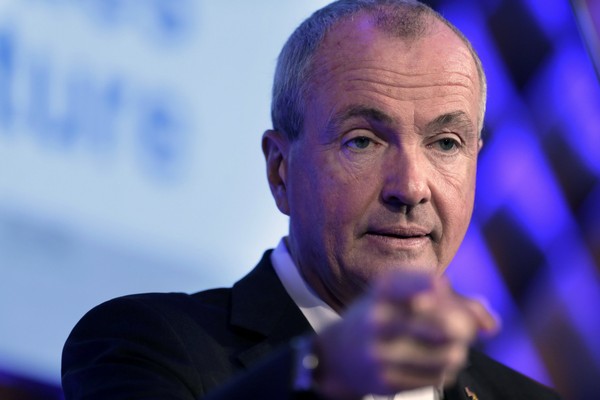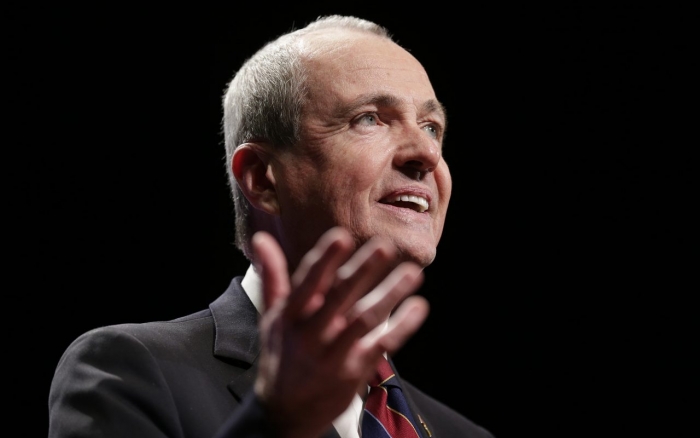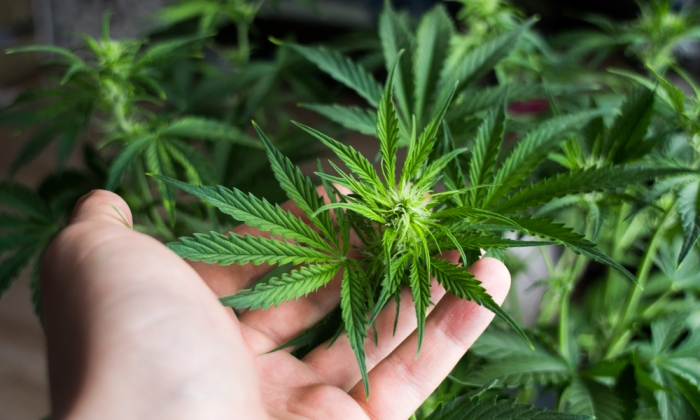Gov. Phil Murphy wants state lawmakers to pass legislation legalizing and taxing recreational marijuana in New Jersey by the end of the year — despite a lack of widespread support from lawmakers in his own party.
Murphy has included $60 million in tax revenue from legal pot in his first state budget proposal, which he unveiled Tuesday.
“I am committed to working with you to get this passed this year,” the Democrat said in his budget address at the Statehouse in Trenton.
Bill Caruso, a lobbyist and a founder of NJ United for Marijuana Reform, told NJ Advance Media that Murphy administration officials expect marijuana legalization to have been passed by Jan. 1.
Caruso said he anticipates the pot bill would be part of negotiations over the budget.
Murphy campaigned on bringing legal weed to the Garden State to drive up tax revenue for the state and cut down on incarceration rates.
But many state lawmakers, Democrats and Republicans alike, have either said they’re opposed to the idea or undecided. NJ Cannabis Insider reported last month that if the bill to legalize marijuana went up for a vote now in the state Senate, it would fail.
The state Legislature, which is controlled by Democrats, needs to pass the bill before Murphy can sign it.
State Senate President Stephen Sweeney, D-Gloucester, is in favor of the proposal. State Assembly Speaker Craig Coughlin, D-Middlesex, remains undecided.
During Murphy’s remarks on cannabis Tuesday, Sweeney stood and applauded. Coughlin did not.
If the legalization bill does not pass, some advisers to Murphy will encourage him to push for a constitutional amendment asking voters whether they want legal pot, according to a source familiar with the situation.
The source is not authorized to speak publicly about Murphy’s plans and requested anonymity.
Some lawmakers have introduced bipartisan compromise legislation to decriminalize marijuana — in which those caught with small amounts would be fined, like traffic offenses.
But Murphy said in his speech Tuesday that doesn’t go far enough.
“I greatly respect those in this chamber who have proposed decriminalizing possession of small amounts of marijuana, and I thank them for recognizing the importance of doing what’s right and just for those who carry criminal records for past possession arrests,” Murphy said.
“But decriminalization alone will not put the corner dealer out of business, it will not help us protect our kids, and it will not end the racial disparities we see,” he added.
State Sen. Ronald Rice, D-Essex, said he was unhappy the governor outright rejected the legislation to decriminalize pot.
Rice — who sponsors that bill — has repeatedly criticized legalizing weed because it will bring more drugs to impoverished communities, and make minorities who are under 21 years old a target for arrest, which has been the case in Colorado.
“He’s listening to policy people and money people around him but not people like myself,” said Rice, a former police officer whose district includes Newark. “The governor and I … we should go to Colorado and talk to people in the hood.”
Sweeney said this week that he is also against the decriminalization bill, meaning it’s unlikely to move forward.
State Assembly Majority Leader Lou Greenwald, D-Camden, said despite being “solidly on the fence” on legalizing marijuana, he appreciated how the governor explained it.
“I was very heartened to hear he started off where people like myself are — with solid reservations as a father and as someone who has talked to thousands of kids across this state,” Greenwald said. “I want to hear from this governor, what tipped it for him? What did he learn? What is the impact on children, on the brain, How do you do this in a safe way?”
New Jersey Responsible Approaches to Marijuana Policy, a group that opposes marijuana, said Tuesday that the tax revenues from legal pot “pale in comparison to the costs associated with drugged driving, more hospital admissions, increased law enforcement, lost tourism dollars, and other costs to our communities.”
“The price of legalization as seen in other states — including greater youth pot use, more car crashes, and more arrests of minorities — is far too expensive for New Jersey communities,” said Jeanette Hoffman, a spokeswoman for the group.
credit:nj.com













